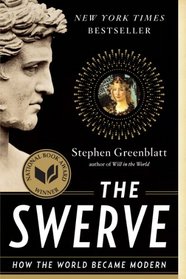Helpful Score: 1
This is one of the best books that I have read in a long time. I thought from the title and commentary that it was something like a Malcolm Gladwell book, but Greenblatt is very careful not to give any more biographical history than is on the record (his main character from the Renaissance, Poggio, "may have" done many things, and keeps to the limited texts (as befitting a Shakespearian scholar). "Swerve" refers to the way atoms move in the Lucretian/Epicurian cosmogony, although Greenblatt uses it also as a fulcrum of history and historical thought.
This book recounts a fascinating new version of the evolution of Western Civilization since 1417, and links its modernization to a rather unexpected source. Essentially, this book has two narratives, one regarding the life of Poggio, and the other regarding Lucretius's poem and the way it worked to shape civilization as we know it. The first of these is extremely well done, but can be rather boring, while the second is more interesting to a general bibliophile but leaps to conclusions at times without sufficient support. Together, the two actually form a rather cohesive and interesting whole, flawed but still worthwhile. I cannot comment on the historical reliability and such, but can certainly say that if one has an interest in history from the period, Roman civilization, Latin, or the impact literature can have upon societies, then this is certainly not a bad choice in reading material.




